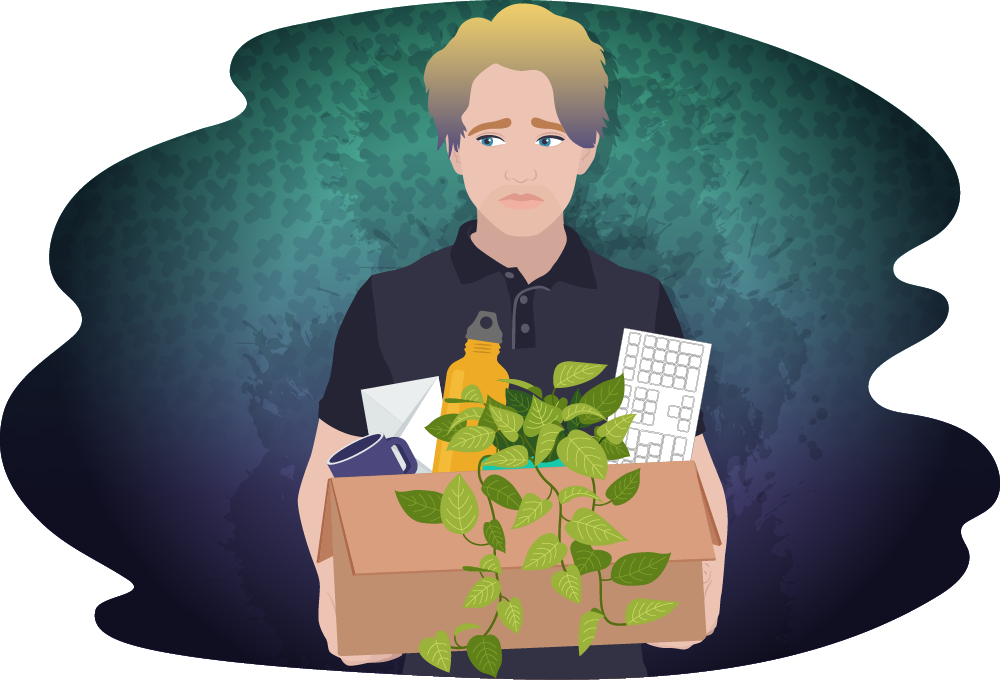Starting work
Starting your first job can be exciting and overwhelming. Check out these ...
READ MEBeing unemployed is temporary and nothing to be ashamed of - but it can make money tight, which is very stressful. Most people will experience a job loss or redundancy one or more times in their life.

Losing your job can be really stressful
If you derive a strong sense of identity or purpose from your work, you can feel really lost. And not only does it hurt your pride… it hurts your bank balance.
Financial stress is one of the main causes of interpersonal conflict and psychological distress.
According to research, there is a link between unemployment, depression and suicide. So financial wellbeing is a very important aspect of mental wellness.
Let’s look at how losing your job affects your brain and mind, and then go through some coping strategies.
If you are feeling depressed, hopeless or are having thoughts of suicide, it’s important to reach out for help.
Our brain under stress
We all have basic needs around having shelter, food and enough essentials in order to survive.
When it becomes a struggle to make ends meet, this triggers a number of brain and body changes known as our ‘stress response’.
Our stress response was designed to help us:
Learn more about how the brain responds to stress.
Chronic stress – like unemployment – can be interpreted a bit like a famine by your brain. This can have significant impacts on your health and wellbeing, including:
Mood disorders, such as anxiety or depression
Sleep, immune, digestive or reproductive issues
Difficulties functioning or carrying out your usual everyday tasks
Maladaptive coping strategies like drug or alcohol abuse, gambling, etc.
“People who are struggling financially can feel ashamed, like they aren’t good enough or even blame themselves for their situation. This might prevent them from asking for help.
Change is really hard without help, especially when you are already doing your best. Everyone deserves to be financially healthy. Getting help isn’t about blame or judgement, it’s about empowerment.”
– Amanda, Kids Helpline Counsellor
Practical coping options
Counsellors/Kids Helpline can’t tell you how to budget or give you any financial advice, because we’re not financial experts. But we can refer you to other places and people that might be able to help.
If you are struggling financially and finding it hard to find a new job, it’s important (and empowering) to get additional support:
Emotional coping strategies
Here are some options for managing the stress side of things:
Even people who are wildly famous and successful have experienced job losses, whether during their early career, or at unexpected times along the way.
Starting work
Starting your first job can be exciting and overwhelming. Check out these ...
READ MEInterviews
Getting an interview is great news when you’re looking for a ...
READ MEResume writing
Looking for work? You’ll need a resume! We’ve got some ...
READ MECoping strategies
If you are feeling stressed, anxious or just struggling to deal, there ...
READ METalking helps! We’re here for you.
No problem is too big or too small.
We're here 24 hours a day, 7 days a week